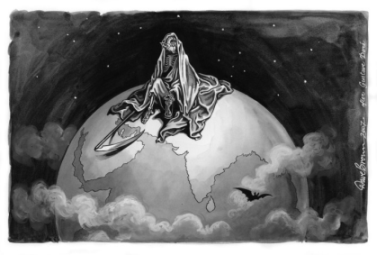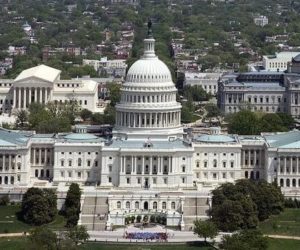
What should Washington do, now that its plans for restoring democracy in Pakistan appear to have unraveled? According the the editorial board of Mexico’s La Jornada newspaper, the U.S. should, ‘Prevent Musharraf from using the assassination of Bhutto and the violence it has unleashed to reinstall the state of emergency and postpone elections indefinitely; pressure him to carry out a peaceful democratic transition as quickly as possible; and relinquish control of a regime whose fall, in any case, seems inevitable.’
EDITORIAL
Translated By Virginia Gillenwater
December 28, 2007
Mexico – La Jornada – Original Article (Spanish)
The former Prime Minister of Pakistan, Benazir Bhutto, was assassinated yesterday in Rawalpindi, a suburb of the capital, Islamabad, while she participated in a political rally while campaigning for parliamentary elections scheduled for January 8. The suicide bombing that claimed the life of the main opposition leader to Pervez Musharraf’s regime, along with about twenty others, has been the subject of condemnation by the international community. Among these, there was U.N. Secretary General Ban Ki-moon’s statement, who described the incident as, “an assault on the stability of the country and its democratic process,” as well as the views of the United States President, George W. Bush, who expressed deep concern and a rejection of the “cowardly” attack by “extremist murderers.”
The death of the former Pakistani premier has succeeded in sinking the Central-Asian nation into a chaotic scene of social tension, which has aggravated the political crisis and the crisis of governance confronting Musharraf’s regime: violent demonstrations and clashes with police have proliferated throughout the country and have resulted in fatalities; Former Prime Minister Nawaz Sharif, the other major figure opposing the government, has announced that his party will boycott the January polls and he has asked for the immediate resignation of the president in order to, “save Pakistan.”
For his part, Musharraf blamed the attack on terrorist groups, called upon the population to remain calm to neutralize their “diabolical project,” and decreed three days of national mourning. Meanwhile, supporters of the deceased leader pointed to the government as the intellectual author of the attack.
Whether such accusations are true or not, it is undeniable that the Pakistani president bears a major share of the responsibility for Bhutto’s murder. Various actions of his government, such as the bloody assault on the Red Mosque in Islamabad last July or the imposition of a state of emergency in November, ostensibly to complete the “transition to democracy” in that country, have ended up generating record levels of violence like those registered yesterday in Rawalpindi. Indeed, the fact that the attack on Bhutto was carried out in town perceived by the population as safe and with a strong military presence only highlights the ineffectiveness of government with an iron fist, as has been the case under Musharraf.
On the other hand, the consternation of the United States over the assassination of Benazir Bhutto is neither casual nor gratuitous. It is worth recalling that within Musharraf are all the elements for his inclusion in Washington’s axis of evil (he came to power in a military coup and is a systematic violator of human rights, who has supported and funded terrorist groups and developed weapons of mass destruction). The bid for a coalition government between Musharraf and Bhutto represented perhaps Washington’s last chance to legitimize, protect and maintain the government that has up to now been a vital ally for Washington’s so-called war against terrorism.
Now with the death of Bhutto, the prospect for a peaceful democratic transition in Pakistan has rapidly dissipated and the United States seems at a crossroads: an unseemly maintenance of relations with the Musharraf government, or a withdrawal of support and a wager on his overthrow, with the enormous risk that could mean in terms of losing control of the nuclear weapons held by the regime of that country, and their transfer into the hands of fundamentalist groups or a Taliban government – which would be no good for anyone.
















